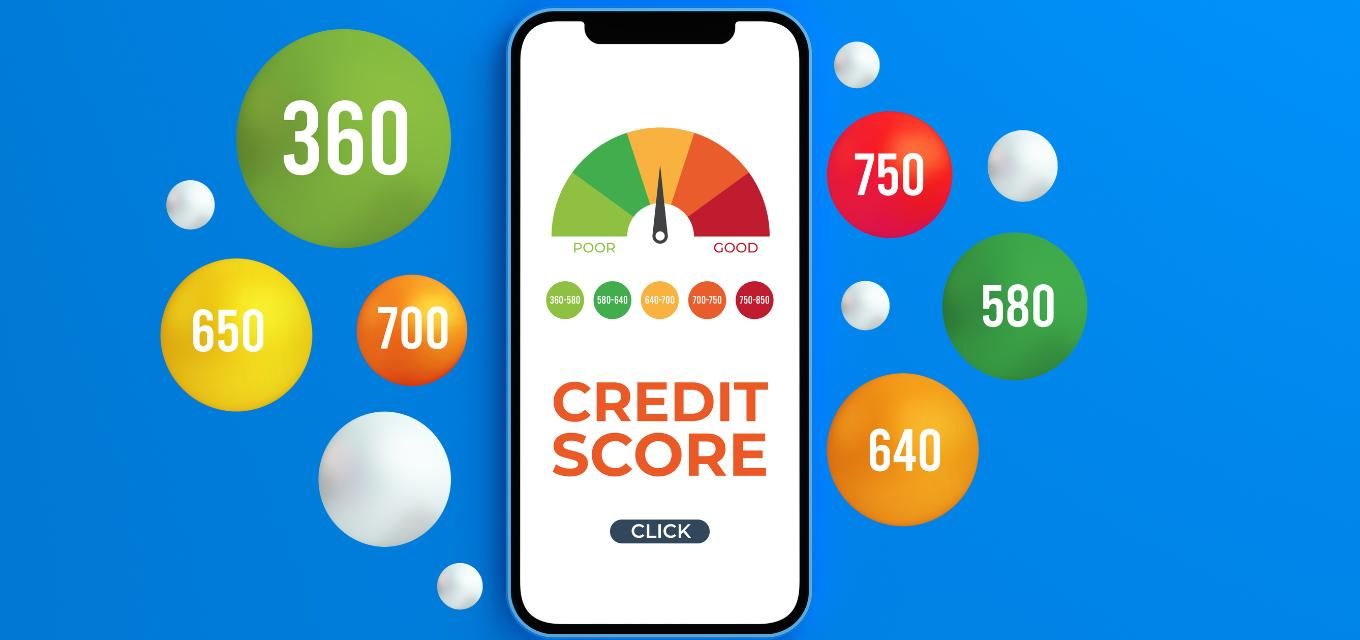Student Loan Consolidation or Refinance: A Guide to Making the Right Choice
Stuck between consolidating or refinancing your student loans? Dive into our high level guide to figure out which is the better choice for you!

Key Takeaways
- Understanding the Concepts: Loan consolidation merges multiple federal loans into one, while refinancing replaces existing loans with a new loan with better terms.
- Impact on Credit Scores: Both consolidation and refinancing can cause a temporary dip in your credit score, which can improve over time with consistent payments.
- Pros and Cons: Consolidation simplifies loan management, but could lead to more accrued interest. Refinancing potentially lowers your interest rate, but you lose federal loan benefits.
- Making the Right Choice: Your personal financial situation and comfort with repayment plans are pivotal in deciding whether to consolidate or refinance your student loans.
Understanding The Concepts: Consolidation vs. Refinancing
In discussions surrounding student loan management within college communities, it's not uncommon to come across various strategies for managing debt. For illustrative purposes, let's refer to one individual grappling with multiple loan repayments as Sarah, who is considering loan consolidation as a potential solution. On the other hand, a person with a keen interest in finance, whom we'll name Mike, strongly advocates for loan refinancing as the superior choice. Just like many student loan borrowers, we were stuck between these two terms. Let's try to understand them better.
Student Loan Consolidation - The "One Payment" Plan
Loan consolidation simplifies student loan management. It merges multiple federal loans into one federal loan, called a Direct Consolidation Loan. It's like packing all your clothes into one suitcase instead of carrying around several bags.
Student Loan Refinancing - The "Better Rate" Strategy
Refinancing, on the other hand, is more like bargaining for a lower price after making a purchase. It involves taking out a new loan from a private lender at a lower interest rate, using it to pay off both federal and private loans.
Getting Into The Details
Like all things, consolidation and refinancing each have unique characteristics.
Characteristics of Loan Consolidation
Sarah picked the consolidation route. Why? Well, she had a number of federal student loans and wanted to streamline her payments. It was easier to remember one due date a month instead of five! Plus, with federal consolidation, she could still access federal loan benefits like income-driven repayment plans and loan forgiveness.
Characteristics of Refinancing
Mike, with his mixed bag of federal and private loans, went for refinancing. He wanted to save money over the long run through lower interest and chose a private lender who offered him a much better rate. He knew he'd lose out on some federal benefits, but the savings were substantial enough to make the trade-off worth it.
Impact on Credit Score
"Wait, isn't my credit score going to take a hit?" I remember Sarah's worried face. I'd like to tell you that these processes will have no impact on your credit score, but that'd be untrue. Whether it's consolidation or refinancing, both involve taking out a new loan, and this can lead to a slight drop in your credit score. But remember, this dip is usually temporary and can improve as you consistently make payments on the new loan.

Pros and Cons - Let's Weigh Them!
Like a see-saw, every financial decision has its ups and downs. Similarly, both these options have their advantages and disadvantages.
Pros and Cons of Loan Consolidation
Consolidation simplifies payments and keeps federal benefits intact but may lead to increased accrued interest over time, especially if you extend your repayment period.
Pros of Student Loan Consolidation
-
One Mega Loan to Rule Them All: Consolidation brings all your federal loans under one umbrella, aka one new loan. It makes loan management simpler; fewer balloons to keep in the air!
-
Tapping into Federal Benefits: With consolidation, you can still tap into some valuable federal benefits like loan forgiveness and income-driven repayment plans, making this option even more attractive.
-
No Credit Check Needed: If your credit score isn't your strongest suit, no need to worry. Good news, federal loan consolidation doesn't require a credit check. So it's a good option for borrowers unable to qualify for private loan refinancing, which does require a good credit score.
-
The Longest Road: Consolidation offers generous repayment terms—up to 30 years. For those balancing a tight budget, this extended repayment period can reduce the monthly payment burden.
Cons of Student Loan Consolidation
-
Only for The Federals: One significant limitation is that only federal loans are eligible for federal loan consolidation. If you have private loans along with federal ones, this might not be your one-stop solution.
-
The Interest Monster: When you consolidate your loans, the outstanding interest on your original loans becomes part of the principal of the consolidation loan. This could mean paying interest on interest – a snowball effect you'd want to avoid!
-
A Potential Losing Game: While consolidating allows you to retain most federal benefits, there's a potential loss of some benefits. For instance, if you're well on your way to qualifying for Public Service Loan Forgiveness (PSLF) on your existing federal loans, consolidating them could void prior PSLF qualifying payments.
Pros and Cons of Refinancing
Refinancing can save you money in the long run with lower interest rates, but you lose access to federal loan benefits. Make sure you're okay with letting these go before opting to refinance.
Pros of Refinancing Student Loans
- The Comfort of Lower Monthly Payments: For many borrowers, one significant advantage of refinancing student loans is reducing the monthly payment. By obtaining a lower interest rate, extending the repayment term, or both, you can make your loan payments more manageable.
Keep in mind, though, that extending your repayment term to achieve a lower monthly payment might increase the overall cost of your loan in the long run.
-
The Allure of Lower Interest: Refinancing can offer the tantalizing potential of scoring a lower interest rate than your current loans. This can save you a significant sum over the course of your loan.
-
Consolidation, but with Spice!: Like consolidation, refinancing allows you to combine various loans, both federal and private— into one simple payment, but with the added benefit of potentially better terms.
-
A New Loan Servicer: An under-appreciated benefit of refinancing is the opportunity to switch to a new loan servicer. If you've had a less than stellar experience with your current servicer, this can be a major advantage.
Cons of Refinancing Student Loans
-
Beware the Siren Song of Low Interest: While the melody of lower interest rates can be enticing, it's crucial to remember that a lower rate isn't guaranteed. Some borrowers may not qualify for a lower rate, especially without a solid credit score.
-
The Shield Falls Away: One significant risk of refinancing is that you lose federal loan protections. This includes income-driven repayment plans, loan forgiveness programs, and forbearance options. If your financial stability is uncertain, this is a critical factor to consider.
-
Credit Check Right Ahead: Unlike federal loan consolidation, you’ll need a good credit score to be eligible for refinancing. A credit check is required, and a high score plays a significant role in securing a lower interest rate. Make sure your credit is in good shape before planning on refinancing.
Consolidation or Refinancing?
There's no one-size-fits-all solution. It depends on your personal financial situation, your type of loans, and your comfort level with your repayment plans. As for me, I chose to consolidate my loans. It just suited my federal loan situation better!
A Step Towards Financial Freedom
Tackling student loans doesn't have to be an uphill battle. Whether you choose to consolidate or refinance your loans, just remember that being informed will ultimately lead you to make the best decision. So, which path do you think is right for you?
The Paidly Advantage
You might find yourself wishing for a more straightforward route besides consolidation or refinancing. That's where Paidly enters the picture. As your trusted ally, Paidly allows employers to assist with your student loans as part of your benefits package, reducing your burden while saving you a pretty penny. So why not explore Paidly and transform the way you handle your student loans? To know more about how Paidly can benefit you, talk to an expert today.
Team Paidly
Paidly is a Student Loan Repayment Benefit platform. Leveraging over a decade and a half of Fintech, student loan origination, and refinancing experience. Paidly specializes in creating custom student loan repayment benefit plans, designed specifically to allow employers to pay directly towards their employees' student loans. Paidly's system requires no integration and enhances talent attraction and employee retention.
Join our newsletter
Don't miss any more news and subscribe to our newsletter today.
The information provided is of a general nature and an educational resource. It is not intended to provide advice or address the situation of any particular individual or entity. Any recipient shall be responsible for the use to which it puts this document. Paidly shall have no liability for the information provided. While care has been taken to produce this document, Paidly does not warrant, represent or guarantee the completeness, accuracy, adequacy, or fitness with respect to the information contained in this document. The information provided does not reflect new circumstances, or additional regulatory and legal changes. The issues addressed may have legal, financial, and health implications, and we recommend you speak to your legal, financial, and health advisors before acting on any of the information provided.
You may also like

A Meaningful Gift for the Ones Who Matter Most
Gifting financial freedom is more than a gesture - it’s an investment in those you care about. Help your loved ones thrive by supporting their education this holiday season.

The Gift That Keeps On Giving: 529 Year-End Bonuses
Spread your year-end bonus further this season by paying directly toward employees’ 529 educational savings plans.

Why You’ll Want to Put Year-End Bonuses Toward Student Loans
Putting employee year-end bonuses directly toward student loans is the perfect way to strengthen your workforce this holiday season.
